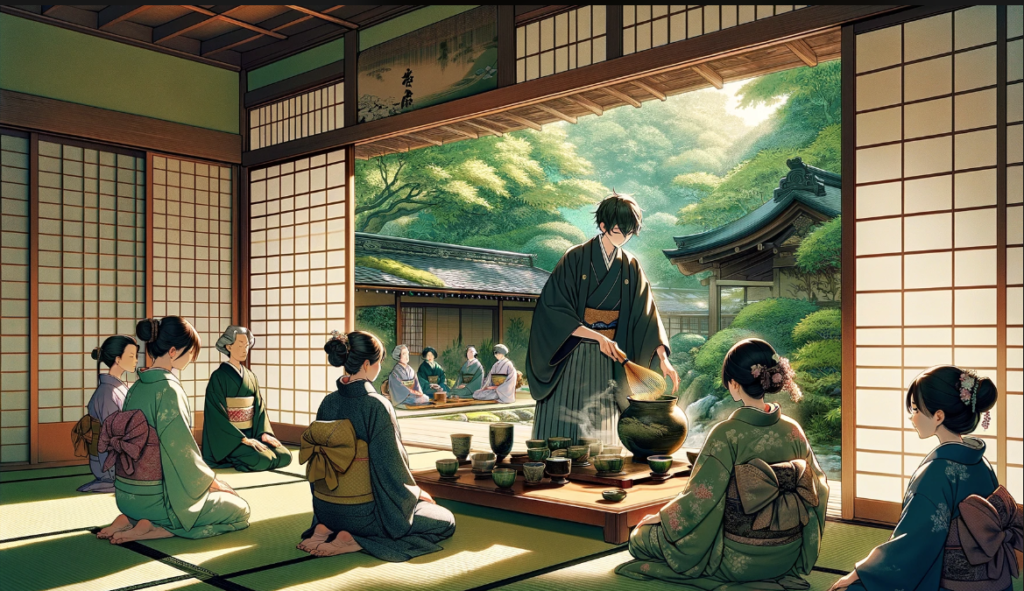
Lesson 1 : Tea Ceremony
Topic Question: Can you explain the significance of the tea ceremony in Japanese culture?
No.1
First, try answering the question yourself. – The instructor will provide advice on vocabulary, grammar, and expression corrections.
▮ Sample Answer – Let’s read aloud – The instructor will check your pronunciation and accent.
The Japanese tea ceremony, also known as “Chanoyu” or “Sado,” is more than just drinking tea. It is a spiritual and philosophical ritual that embodies harmony, respect, purity, and tranquility. Originating in the 15th century, it reflects the Zen Buddhist principles and emphasizes the beauty of simple and transient things. The ceremony is meticulously planned and performed, involving specific utensils, attire, and procedures. Each element, from the preparation to the serving of matcha (powdered green tea), is symbolic, aiming to create a moment of harmony between the host and guests. It celebrates the art of hospitality and mindfulness, making it a profound cultural tradition in Japan.
No.2
5 Words to Learn and Their Meanings – Pronounce the Words Correctly (Pronunciation Training) + Make Sentences Using the Words Instantly
- Spiritual (精神的な): Relating to or affecting the human spirit or soul.
Meditation is a spiritual practice that helps me find inner peace. - Philosophical (哲学的な): Relating to the study of the fundamental nature of knowledge, reality, and existence.
We had a philosophical discussion about the meaning of life. - Meticulously (細心の注意を払って): Showing great attention to detail; very careful and precise.
She meticulously planned her trip to ensure everything went smoothly. - Symbolic (象徴的な): Serving as a symbol of something.
The olive branch is symbolic of peace. - Mindfulness (マインドフルネス): The quality or state of being conscious or aware of something.
Practicing mindfulness can greatly reduce stress and anxiety.
No.3
Key Expressions and Example Sentences – Pronounce the Example Sentences of Key Expressions Correctly (Pronunciation Training) + Make Sentences Using the Key Expressions Instantly
1. Embodies (を体現する)
This painting embodies the artist’s emotions during a difficult time in his life.
2. Zen Buddhist principles (禅仏教の原則)
The concept of simplicity in Zen Buddhist principles has influenced my lifestyle.
3. Art of hospitality (おもてなしの芸術)
Japanese culture is renowned for its art of hospitality and meticulous attention to guests’ needs.
No.4
Discussion and Exchange of Opinions on the Sample Answer
Instructor: What do you think about the philosophical aspects of the tea ceremony?
Do you see any value in incorporating such traditions into modern life?
Student: [Opinions of students]
No.5
Free Discussion on the topic
Let’s discuss how traditional rituals like the tea ceremony can play a role in today’s fast-paced society. Can adopting aspects of such ceremonies help improve our quality of life or mindfulness in the modern world?







